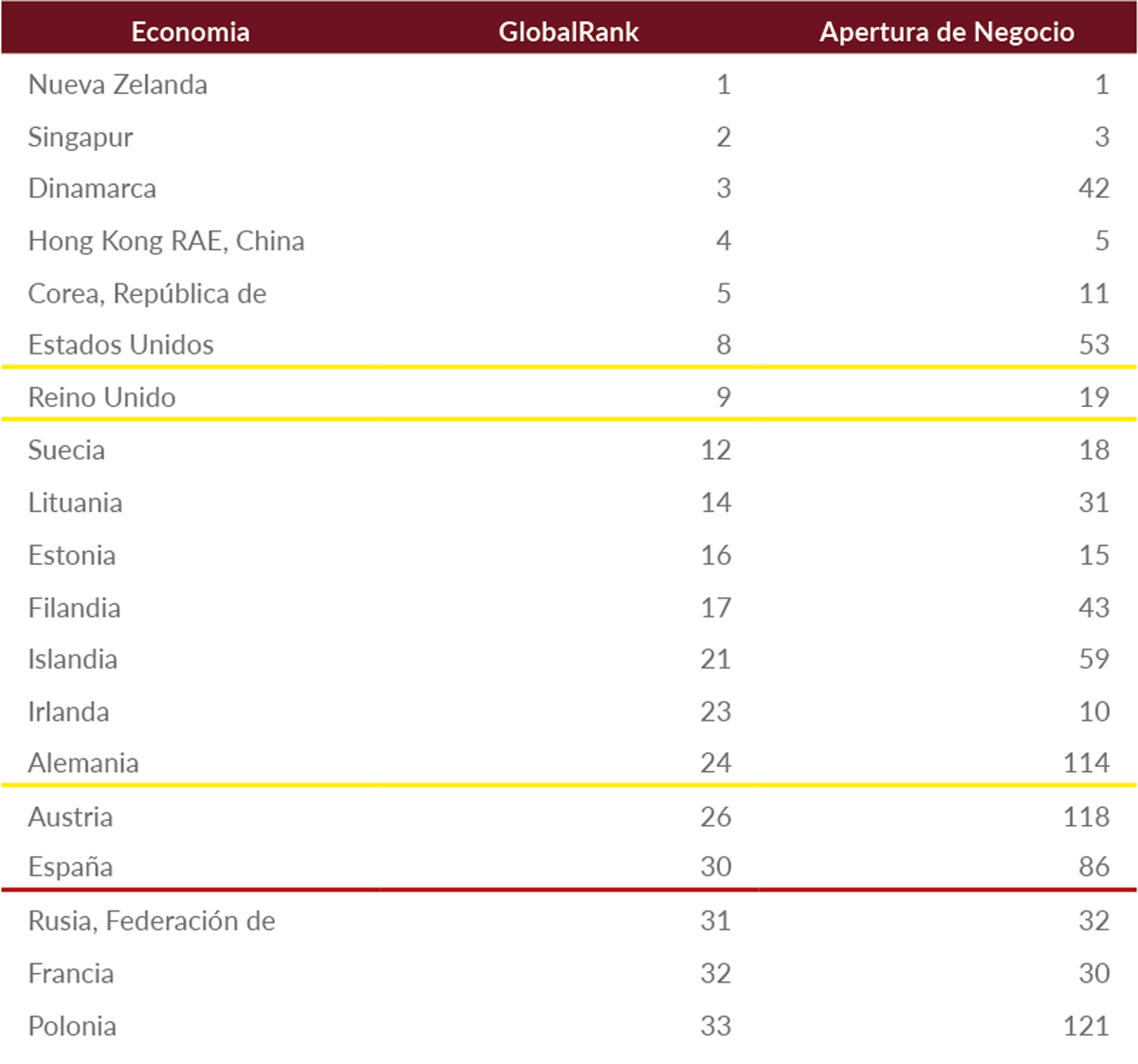
Digital Holocaust
2 April, 2016
Goodbye ING Corporate Banking! We will miss you
3 October, 2019
24 July, 2019
Or how to prevent the Spanish government from destroying our conquering spirit.
If Spain had never been an entrepreneurial nation, it would never have become an empire. Queen Isabella the Catholic - the venture capitalist I most admire - took the visionary ideas of the enterprising Christopher Columbus and financed an endeavour many described as "madness". The three Spanish ships, however, not only proved the visionary seaman's ideas to be true, but also brought wealth to the crown and thus to the nation. Those were the times when Spain was an empire.
Since then, entrepreneurship in our country has gone downhill. There have been many justifications for not embarking on an entrepreneurial venture and even greater obstacles for people who have an idea. If we continue like this, we will never return to what we were. And the State and the Treasury are the biggest culprits.
In 2018, 96,289 new companies were created in Spain, a number slightly higher than those 95,210 new businesses founded in 2017. This is revealed by the 2018 Business Demographics Study conducted by Informa. The setback in the incorporation of new companies in our country accounted in 2017, broke the path of recovery that began in 2009. Spain returns to a positive trend in the creation of companies, although far from the data prior to the crisis. The Doing Business Index, which lawfully ranks countries for the creation and operation of a local company, places Spain in 30th place out of a total of 190 economies, a position undoubtedly in the top third, but not optimal. Countries that promote and favor large companies in their economic structure are better positioned, as is the case of the United Kingdom and Germany in Europe.

According to data from the 'Global Entrepreneurship Monitor (GEM) Spain 2018-19 Report, the Total Early-Stage Entrepreneurial Activity (TEA) in Spain has risen from 5.2% in 2016 to 6.4% in 2018, approaching pre-crisis levels (7.6% in 2007). However, the Spanish rate is still below the European average (8.7%). Likewise, the average percentage of potential entrepreneurs in the European Union as a whole (14.1%) was higher than in Spain (6.8%). In fact, in the last year, Spain was the European country with the lowest percentage of potential entrepreneurs, while Croatia was the country with the highest percentage (22.4%).
A study by the Universities of Berkeley and Stanford, which analyzed over 3,200 start-ups, estimated the failure rate of recently created companies at 90%, and those that succeeded also experienced serious difficulties that put them at risk of closure.
Entrepreneurship requires not only a good idea, but also a well-defined project, a leader who can build a team capable of carrying it out, and the necessary financial resources. In Spain, 82% of new companies do not reach their fourth anniversary.
Obstacles to starting a business in Spain: financing, bureaucracy, tax and social security and lack of education.
The GEM Spain report shows that some of the obstacles encountered by Spanish entrepreneurs are financing, bureaucracy, taxes and lack of education. The report shows that the entrepreneurial potential in Spain increased between 2010 and 2012. During this period, the percentage of the adult population with the intention of entrepreneurship in the following three years doubled, from approximately 6% to 12%. Despite decreasing in the following two years, this indicator remained relatively high until 2014. However, since 2015 it returned to around 6% and has remained more or less stable until 2018 (6.8%). Facing the lack of opportunities in the labor market, this indicator shows an interest by the working population in undertaking a business.
The GEM report shows that the injection of resources in the early stages of new businesses comes mainly from personal funds, family, friends or close acquaintances. There is difficult access to the scarce number of public and private financing opportunities. Similarly, and since 2009, excessive bureaucracy continues to be one of the main obstacles to entrepreneurial activity throughout Spain. Taxes and lack of financing are often the main causes of business closures in our country.
Government policies continue to occupy the top positions in the ranking of obstacles to entrepreneurial activity throughout Spain since 2009. In this edition, the Spanish experts interviewed agree on excessive bureaucracy, high taxes and regulatory dispersion depending on the autonomous community. In fact, high tax rates and lack of financing are often the main reasons for business closures. GEM Report (Global Entrepreneurship Monitor) Spain 2018-2019
Social and cultural norms rank equally with politics in the list of impediments to entrepreneurship. Although awareness has been raised, the GEM report assures that more efforts are still needed to strengthen the image of the entrepreneur and the entrepreneurial culture in society. Education and training (33.3%) close the list of obstacles. Specifically, the experts agree that more orientation towards an entrepreneurial culture is needed at various stages of the education system.
The tax aspect is utterly different in other countries with high entrepreneurship. In Britain for example, you do not need to register for VAT if your turnover is less than £85,000, nor do you need to register as self-employed if annual profits are less than £1,000 in a tax year.
New legislative framework for startups.
The Spanish government has launched the legislative procedure to shape a new regulation governing start-ups, which will provide these entities with a "special legal framework" that differentiates them from SMEs. The regulations seek to provide greater legal certainty and organize their investment, encourage the attraction of talent as well as research and innovation activities, and create a system so that they can be integrated into the production systems of large companies.
As already stated above, one of the biggest obstacles in Spain for the creation of start-ups is taxes. This point is one of the claims of the startup ecosystem, given that the first years are key to be able to move forward with the projects. The government will need to carry out a tax review when it comes to these companies.
Entrepreneur, writer and professor Carlos Blanco says that according to a report by Accenture Strategy in 2020, more than 22% of Spanish GDP will be linked to the digital world, so he urges the Spanish government to " truly support entrepreneurship". He talks about encouraging private investment in start-ups, streamlining the processes of business creation, encouraging large companies and a "special tax regime for start-ups, since their level of risk and R&D is far above that of other businesses".
The ‘Varsavsky’ case.
Stories of success demonstrate that entrepreneurship makes a country great. Martín Varsavsky, from Buenos Aires, founded seven companies in 20 years. He is a clear example of the serial entrepreneur, people with a great capacity to detect new opportunities and ideas and create several projects simultaneously, whether they are in the same sector or in completely different ones.
According to Spain Startup in its 2018 Entrepreneurship Map, the probability of failure when setting up a single startup is 50%, but this figure drops to 26% in the case of two companies, 15% in the case of three, 8% in the case of four and a mere 2% when having set up five or more startups. In Spain, 46% of entrepreneurs who found a startup, repeat, a percentage higher than 35% in Europe and just over 45% in Latin America. With these numbers, serial entrepreneurs are looking for business opportunities, financing and take off with one idea.
In Spain there are many serial entrepreneurs such as Diego Ballesteros, founder of Ocioteca and the food delivery website SinDelantal. His latest projects, linked to the world of beauty, are Miora and Bewe. After more than 22 years of entrepreneurship and having launched five projects and closed three exits (sale of the company), he is also an investor.
Barcelona-born Christian Rodríguez Fornós is also a serial entrepreneur. He first began to dabble into the business world at the age of sixteen, organizing and managing events while studying, and at the age of eighteen he created his first company. Founder of the hourly hotel booking app ByHours and before that, founder of the secret events company Urban Secrets.
Conclusions.
In order for a country to move forward, it is important for it to be entrepreneurial and, as proven by statistics from other societies such as the United States or the UK and successful Spanish entrepreneurs, once is not enough. It is essential to promote serial entrepreneurship because 80% of those who try will fail and will have to get up, dust off and try again.
Although we would prefer it otherwise, one of the main characteristics of start-ups is that they may not succeed, but in my opinion, they must try again, as failure is an essential part of their development and the road to success. According to entrepreneur.com, having an open mind to failure opens the door to experimentation as a working method; in a startup you are always evolving, pivoting, and failures are the best way to learn how to improve products and procedures. Therefore, an entrepreneurial liberalism is necessary, following the principles of economic liberalism, so that the market decides and only the best survive.
Likewise, policies to create companies must include the reduction of penalties for entrepreneurs, including taxes. Our beloved Public Treasury and Social Security - whom I affectionately like to call The New Inquisition, to commemorate the times of Isabella and Columbus - should take a look at this type of companies, according to the European Union. A report prepared by the EU and published by El País, denounces the enormous inequality in cost that still exists between some countries and others, especially considering that only the new companies born in Spain in 2018 meant an investment of more than 5,300 million euros for the country, 1 % above the amount invested in 2017.
It is all these factors that make it necessary to review the economic policy of start-ups and freelancers in Spain, because the creation of a private business network is the only way for us to return to the great business empire we once knew how to be.
Source:
Global Entrepreneurship Monitor: informe GEM España. – [Madrid : Instituto de Empresa, Cátedra Najeti], [2003]- — 2013- Santander : Editorial de la Universidad de Cantabria.
Acs, Z., Szerb, L. y Autio, E. (2015). Global Entrepreneurship Index 2015. Washington, D.C.: The Global Entrepre-neurship and Development Institute.
https://www.expansion.com/pymes/2019/01/02/5c2618b8468aeb721f8b4608.html
https://cincodias.elpais.com/cincodias/2017/03/29/emprendedores/1490777749_586194.html
https://www.emprendedores.es/crear-una-empresa/a26323391/gem-global-emprendimiento-espana/
https://www.gemconsortium.org/report/gem-2018-2019-global-report
https://www.businessinsider.es/consiste-ley-startups-quiere-lanzar-gobierno-361467





